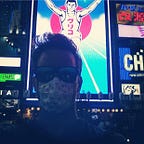Civil rights leader rouses audience
On Saturday, Nov. 7th, civil rights leader Dr. Clarence B. Jones spoke at Allen Temple Baptist Church in Oakland. His appearance is part of the Barbara Lee and Elihu Harris Lecture Series the purpose of which is to educate and inspire the public with regards to civil rights issues by featuring speakers who worked closely with the late Dr. Martin Luther King Jr. Jones, who is currently Scholar in Residence at Stanford University, was a close friend, confidant, speech writer, and legal counselor to King during the civil rights era. He even helped draft the famous “I Have a Dream” speech.
Jones began to sing a gospel song as he approached the podium of the almost packed auditorium. The church choir seated behind him on the stage joined in almost immediately, and were followed shortly thereafter by the audience which stood in ovation. This was a powerful indication of the legacy which Jones and many other civil rights veterans carry to this day.
The central theme of Jones’ lecture was the struggle to go from “chaos to community” a struggle that was exemplified by King and his contemporaries and continues into the present. Jones described the Dr. King as “the 20th century’s preeminent apostle of non-violence” and said that King’s role in the tumultuous civil rights era “may have done more for racial justice in the U.S.” than anyone else since “Abraham Lincoln and the Emancipation Proclamation.”
Jones’s first interaction with Dr. King came in February 1960, Jones, 29, had served in the Korean War and recently finished his degree at Boston School of Law. King had been indicted by the state of Alabama on politically motivated charges of tax evasion. King, who’s legal counsel at the time was mostly white, reached out to Jones hoping to gain help and insight of a black lawyer in the case. Jones turned down King’s initial request and spoke candidly about how he had originally intended to remain entertainment lawyer in California with a “pool and a convertible.”
While King was eventually acquitted of all the charges he invited Jones to a sermon he gave entitled “The Responsibility the Negro Preacher Has.” The sermon was powerful enough to persuade Jones to rededicate himself to the cause of civil rights. What followed was a close relationship in which Jones would provide professional and personal legal counsel in multiple court cases, meetings with U.S. presidents John F. Kennedy and Lyndon Johnson; and was a component in the writing of many of King’s speeches.
Turning his attention to present Jones lamented that “our generation marched so that Black Lives Matter wouldn’t have to march.” Jones commented on the historical significance of President Obama’s election, commenting on the elation that much of black America felt, “There were some” Jones said, “who when Barack Obama was elected…it was their nirvana …we had arrived.” Obama’s Presidency, however, was to be heavily attacked by the right, particularly the emerging Tea Party movement. “Look at what has happened since 2008” Jones said. Finding parallel with the reactionary whites of the Reconstruction Era Jones commented that “there is a mounting of a counter-revolution to overturn what Barack Obama’s election represents.”
Showing some of the preaching abilities of his mentor Jones declared that “It is blasphemy! Blasphemy! That African American parents in 2015 have to sit their children down to tell them how to behave when they go out.” Referring to the pervasive victim blaming present in the murder cases of many African Americans such as Michael Brown and Trayvon Martin.
Finally, Jones stressed the importance of political savvy and the power of the vote saying that “the most effective way to honor his (King’s) legacy and what he died for is to vote.” He stated further that “Black Lives Matter must think fundamentally about the axioms of power…we get nothing by asking for it, begging for it…at the end of the day we gotta organize block by block, precinct by precinct” in order to “get the votes to force them to understand.” He advised young activists, with a half-smile, to wield such collective power to “put your foot up someone’s desk” when necessary.
Maxwell Sharp is a Tower co-editor. Email him at maxcsharp88(a)gmail.com
